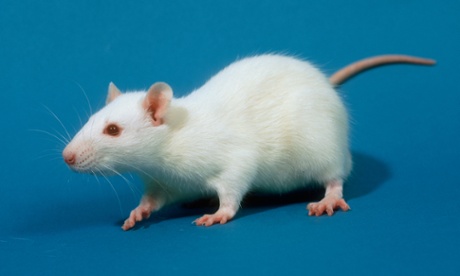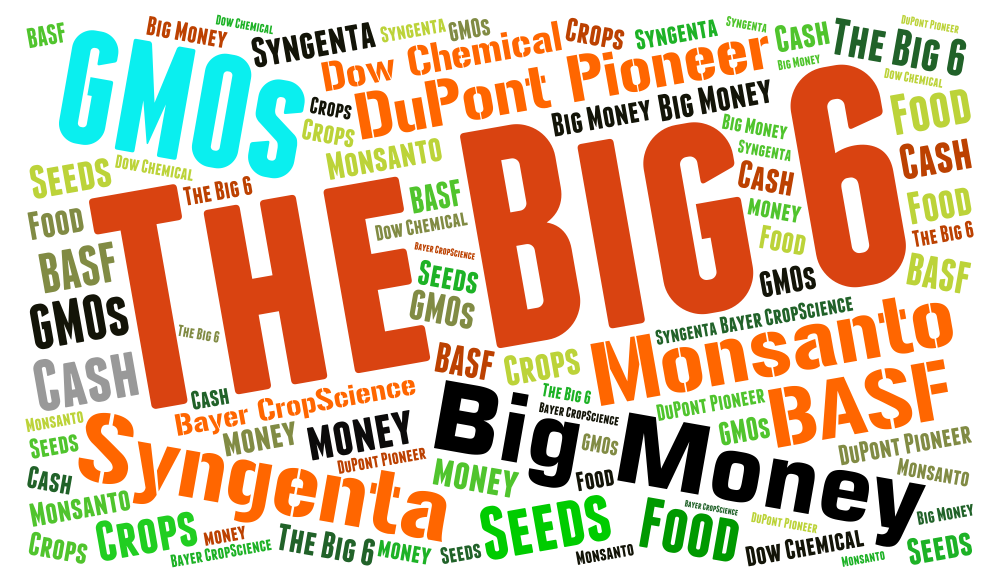Controversial Seralini study linking GM to cancer in rats is republished
Paper on link between GM corn and cancer in lab rats is republished
after journal withdrew it – but critics say it is still flawed
French scientists who in 2012 wrote a contested study
linking pesticide-treated, genetically-modified corn with cancer in lab
rats returned to the attack on Tuesday, republishing their work online.
Denying accusations of bad science, the team said the work, which was withdrawn by the journal which first printed it, had been republished in Environmental Sciences Europe, owned by Germany's Springer group.
The raw data has also been placed in the public domain for others to scrutinise, the researchers said.
"Censorship of research into the risks of a technology so intertwined with global food safety undermines the value and credibility of science," the team said in a statement.
The research kicked up a hornet's nest when it was first published in September 2012.
Its authors, led by Gilles-Eric Seralini, a professor at the University of Caen in Normandy, said rats fed NK603 corn and Roundup weedkiller developed liver and kidney disease and mammary tumours.
Many other scientists said at the time that the study was flawed. And commentators on Tuesday said nothing has changed through publishing it again.
NK603, made by the US agribusiness giant Monsanto, has been engineered to be immune to the weedkiller Roundup. As a result, farmers can spray their fields to kill weeds without harming their crops.
The authors stood by their original research on Tuesday and lashed out at the journal Food and Chemical Toxicology for withdrawing it - a great humiliation in the scientific world.
"Roundup formulations and Roundup-tolerant GMOs should be considered as (hormonal) disruptors and their present assessments on health are drastically deficient," they wrote.
Open publication in the Springer journal provides a forum "so that science can reclaim its rights against the pressures of the industry seeking to suppress 'whistle-blowers'," they said.
In defence of their study, the scientists said it was the first to be carried out on lab rodents over their normal lifespan of two years as opposed to the usual 90 days.
They said the study was designed to test toxicity rather than causes of cancer.
Critics faulted the experimental method, saying the number of rats studied was too small and their diet was skewed when compared with their natural food intake.
They also attacked the choice of rat - so-called Sprague-Dawley rats, a standard choice for lab experiments but highly prone to developing cancers, particularly in old age.
In an initial reaction Tuesday, critics said their concerns have still not been answered.
"Republishing data that was faulty in the first place in study design and analysis does not provide redemption. Furthermore, it is now possible to publish almost anything in open access journals," said Tom Sanders, a professor of nutrition and dietetics at King's College London.
Source: http://www.theguardian.com/environment/2014/jun/24/controversial-seralini-study-gm-cancer-rats-republished
Denying accusations of bad science, the team said the work, which was withdrawn by the journal which first printed it, had been republished in Environmental Sciences Europe, owned by Germany's Springer group.
The raw data has also been placed in the public domain for others to scrutinise, the researchers said.
"Censorship of research into the risks of a technology so intertwined with global food safety undermines the value and credibility of science," the team said in a statement.
The research kicked up a hornet's nest when it was first published in September 2012.
Its authors, led by Gilles-Eric Seralini, a professor at the University of Caen in Normandy, said rats fed NK603 corn and Roundup weedkiller developed liver and kidney disease and mammary tumours.
Many other scientists said at the time that the study was flawed. And commentators on Tuesday said nothing has changed through publishing it again.
NK603, made by the US agribusiness giant Monsanto, has been engineered to be immune to the weedkiller Roundup. As a result, farmers can spray their fields to kill weeds without harming their crops.
The authors stood by their original research on Tuesday and lashed out at the journal Food and Chemical Toxicology for withdrawing it - a great humiliation in the scientific world.
"Roundup formulations and Roundup-tolerant GMOs should be considered as (hormonal) disruptors and their present assessments on health are drastically deficient," they wrote.
Open publication in the Springer journal provides a forum "so that science can reclaim its rights against the pressures of the industry seeking to suppress 'whistle-blowers'," they said.
In defence of their study, the scientists said it was the first to be carried out on lab rodents over their normal lifespan of two years as opposed to the usual 90 days.
They said the study was designed to test toxicity rather than causes of cancer.
Critics faulted the experimental method, saying the number of rats studied was too small and their diet was skewed when compared with their natural food intake.
They also attacked the choice of rat - so-called Sprague-Dawley rats, a standard choice for lab experiments but highly prone to developing cancers, particularly in old age.
In an initial reaction Tuesday, critics said their concerns have still not been answered.
"Republishing data that was faulty in the first place in study design and analysis does not provide redemption. Furthermore, it is now possible to publish almost anything in open access journals," said Tom Sanders, a professor of nutrition and dietetics at King's College London.
Source: http://www.theguardian.com/environment/2014/jun/24/controversial-seralini-study-gm-cancer-rats-republished






